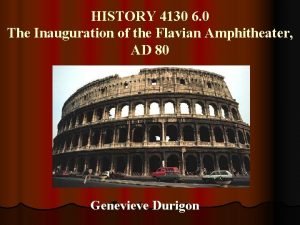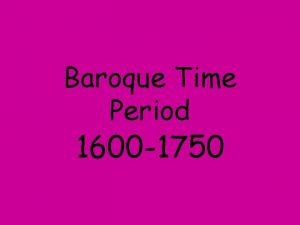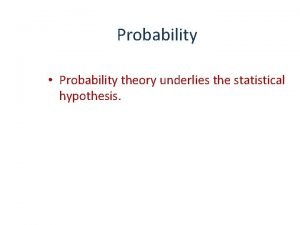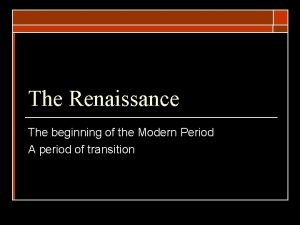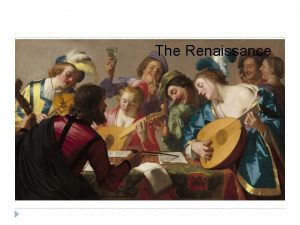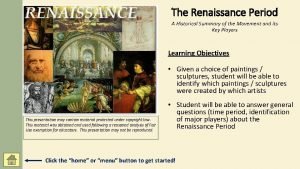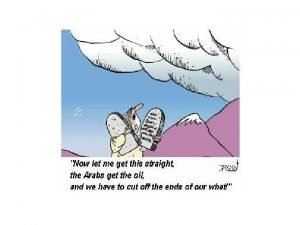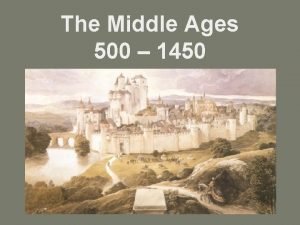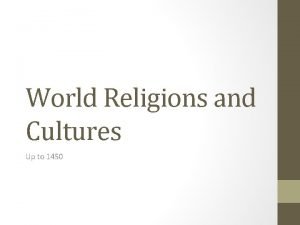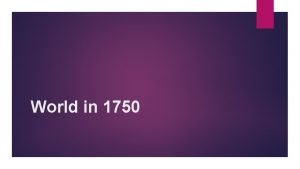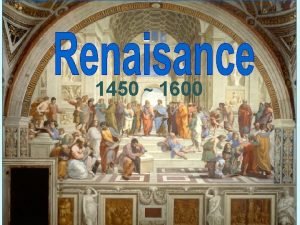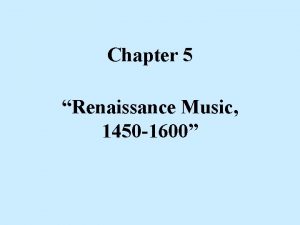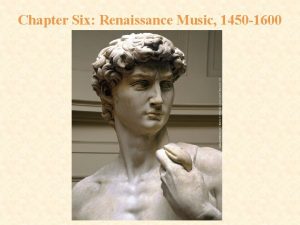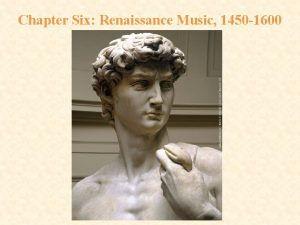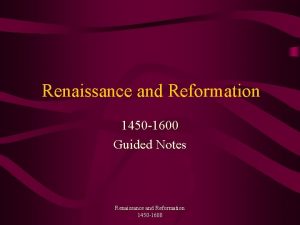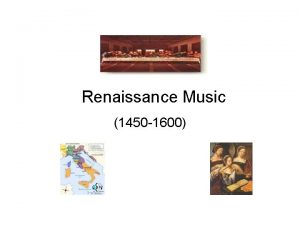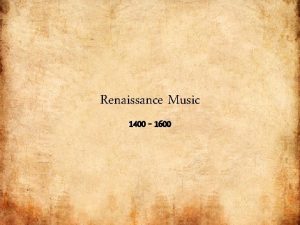Renaissance 1450 1600 Historical Events of the Renaissance













- Slides: 13

Renaissance 1450 -1600

Historical Events of the Renaissance Time Period 1431 – Joan of Arc burned at the stake 1455 – Printing Press was invented 1475 – Michaelangelo was born 1492 – Columbus discovers America

Historical Events of the Renaissance Time Period 1500 – First pencil 1517 – Martin Luther posts 95 theses 1553 – Violin began to develop 1564 – Shakespeare was born

Important Facts 1435 - Gutenberg press invented 1465 – 1 st printed music appears 1503 -1506 – Mona Lisa is painted by da Vinci 1508 -1512 –Sistine Chapel is painted by Michelangelo

Important Facts 1509 – Henry VIII becomes King of England 1517 – Protestant reformation begins in Germany 1519 – Cortez conquers Mexico 1588 – Spanish Armada is defeated

General Facts After the dark ages, the period of enlightenment The rebirth of humanism More artistic freedom

Instruments of the Renaissance Violin was developed Lute was at the height of popularity Bagpipes were created and played on Scottish battlefields

Instruments of the Renaissance Clavichord was developed (early piano) Instruments were used for dance music Instrumentalists began to improvise

Vocal Music Chant is still used in church and by monks Mass was created (sung part of the Eucharist) Motets – sacred pieces Madrigals – Italian secular pieces

Vocal Music Chansons – French secular songs Secular music began to sing about courtly love (new idea) Women made music outside of church and were gradually allowed to sing in church Men’s voices imitated women

Composers William Byrd Giovanni Gabrielli Giovanni Palestrina John Dowland

Ars Nova (New Art) Creativity Improvisation Composers emphasized human emotions Music became more lively and up beat Polyphony was developed (canonround )

Important Vocabulary Renaissance period A cappella Lute Sacred music Secular music Madrigal Polyphony canzona
 Renaissance history event
Renaissance history event What is the “renaissance rebirth?”
What is the “renaissance rebirth?” Amphitheater bloodsport
Amphitheater bloodsport Baroque era historical events
Baroque era historical events Mutually exclusive vs non mutually exclusive
Mutually exclusive vs non mutually exclusive Renaissance art characteristics
Renaissance art characteristics Where did the renaissance take place
Where did the renaissance take place Period
Period Important events of the renaissance
Important events of the renaissance Fur trade ap world history
Fur trade ap world history 1250 bc
1250 bc 500/1450
500/1450 Religion 1450-1750
Religion 1450-1750 Mughal empire 1450 to 1750
Mughal empire 1450 to 1750


